-
BackX
-
Components
-
-
Category
-
Semiconductors
- Diodes
- Thyristors
-
Electro-insulated Modules
- Electro-insulated Modules | VISHAY (IR)
- Electro-insulated Modules | INFINEON (EUPEC)
- Electro-insulated Modules | Semikron
- Electro-insulated Modules | POWEREX
- Electro-insulated Modules | IXYS
- Electro-insulated Modules | POSEICO
- Electro-insulated Modules | ABB
- Electro-insulated Modules | TECHSEM
- Go to the subcategory
- Bridge Rectifiers
-
Transistors
- Transistors | GeneSiC
- SiC MOSFET Modules | Mitsubishi
- SiC MOSFET Modules | STARPOWER
- Module SiC MOSFET ABB’s
- IGBT Modules | MITSUBISHI
- Transistor Modules | MITSUBISHI
- MOSFET Modules | MITSUBISHI
- Transistor Modules | ABB
- IGBT Modules | POWEREX
- IGBT Modules | INFINEON (EUPEC)
- Silicon Carbide (SiC) semiconductor elements
- Go to the subcategory
- Gate Drivers
- Power Blocks
- Go to the subcategory
- Electrical Transducers
-
Passive components (capacitors, resistors, fuses, filters)
- Resistors
-
Fuses
- Miniature Fuses for electronic circuits - ABC & AGC Series
- Tubular Fast-acting Fuses
- Time-delay Fuse Links with GL/GG & AM characteristics
- Ultrafast Fuse Links
- Fast-acting Fuses (British & American standard)
- Fast-acting Fuses (European standard)
- Traction Fuses
- High-voltage Fuse Links
- Go to the subcategory
- Capacitors
- EMI Filters
- Supercapacitors
- Power surge protection
- TEMPEST emission revealing filters
- Surge arrester
- Go to the subcategory
-
Relays and Contactors
- Relays and Contactors - Theory
- 3-Phase AC Semiconductor Relays
- DC Semiconductor Relays
- Controllers, Control Systems and Accessories
- Soft Starters and Reversible Relays
- Electromechanical Relays
- Contactors
- Rotary Switches
-
Single-Phase AC Semiconductor Relays
- AC ONE PHASE RELAYS 1 series| D2425 | D2450
- One phase semiconductor AC relays CWA and CWD series
- One phase semiconductor AC relays CMRA and CMRD series
- One phase semiconductor AC relays - PS series
- Double and quadruple semiconductor AC relays - D24 D, TD24 Q, H12D48 D series
- One phase semiconductor relays - gn series
- Ckr series single phase solid state relays
- One phase AC semiconductor relays for DIN bus - ERDA I ERAA series
- 150A AC single phase relays
- Rail Mountable Solid State Relays With Integrated Heat Sink - ENDA, ERDA1 / ERAA1 series
- Go to the subcategory
- Single-Phase AC Semiconductor Relays for PCBs
- Interface Relays
- Go to the subcategory
- Cores and Other Inductive Components
- Heatsinks, Varistors, Thermal Protection
- Fans
- Air Conditioning, Accessories for Electrical Cabinets, Coolers
-
Batteries, Chargers, Buffer Power Supplies and Inverters
- Batteries, Chargers - Theoretical Description
- Modular Li-ion Battery Building Blocks, Custom Batteries, BMS
- Batteries
- Battery Chargers and Accessories
- Uninterruptible Power Supply and Buffer Power Supplies
- Inverters and Photovoltaic Equipments
- Energy storage
- Fuel cells
- Lithium-ion batteries
- Go to the subcategory
-
Automatics
- Spiralift Lifts
- Futaba Drone Parts
- Limit Switches, Microswitches
- Sensors, Transducers
-
Infrared Thermometers (Pyrometers)
- IR-TE Series - Water-proof Palm-sized Radiation Thermometer
- IR-TA Series - Handheld Type Radiation Thermometer
- IR-H Series - Handheld Type Radiation Thermometer
- IR-BA Series - High-speed Compact Radiation Thermometer
- IR-FA Series - Fiber Optic Radiation Thermometer
- IR-BZ Series - Compact Infrared Thermometers
- Go to the subcategory
- Counters, Time Relays, Panel Meters
- Industrial Protection Devices
- Light and Sound Signalling
- Thermographic Camera
- LED Displays
- Control Equipments
- Go to the subcategory
-
Cables, Litz wires, Conduits, Flexible connections
- Wires
- Cable feedthroughs and couplers
- Litz wires
- Cables for extreme applications
- Sleevings
-
Braids
- Flat Braids
- Round Braids
- Very Flexible Flat Braids
- Very Flexible Round Braids
- Cylindrical Cooper Braids
- Cylindrical Cooper Braids and Sleevings
- Flexible Earthing Connections
- Galvanized and Stainless Steel Cylindrical Braids
- PCV Insulated Copper Braids (temp. up to 85C)
- Flat Aluminium Braids
- Junction Set - Braids and Tubes
- Go to the subcategory
- Traction Equipment
- Cable Terminals
- Flexible Insulated Busbars
- Flexible Multilayer Busbars
- Cable Duct Systems
- Go to the subcategory
- View all categories
-
Semiconductors
-
-
- Suppliers
-
Applications
- CNC Machine Tools
- DC and AC Drives (Inverters)
- Energetics
- Energy bank
- Equipment and Components for Hazardous Areas [Ex]
- Equipment for Distribution, Control and Telecommunications Cabinets
- HVAC Automation
- Induction Heating
- Industrial Automation
- Industrial Protective Devices
- Machines for Drying and Wood Processing
- Machines for Thermoforming Plastics
- Mining, Metallurgy and Foundry
- Motors and Transformers
- Power Supplies (UPS) and Rectifier Systems
- Printing
- Temperature Measurement and Regulation
- Test and Laboratory Measurements
- Tram and Railway Traction
- Welding Machines
-
Assembly
-
-
Inductors
-
-
Induction devices
-
-
Service
-
- Contact
- Zobacz wszystkie kategorie
Why is thread locking important?

Threads are spiral cuts on the surface of screws, nuts, or holes that enable a permanent and stable connection of mechanical components. Due to their simplicity and efficiency, threads play a key role in many industries, such as automotive, construction, aviation, and machinery manufacturing. Their versatility lies in the ability to transfer both axial loads and torsional moments, making them indispensable in the assembly and servicing of industrial devices.
In industry, threads are used in many aspects, from industrial machine construction, hydraulic and pneumatic installations, to delicate electronic devices. In applications requiring exceptional durability, such as in bridge constructions or vehicles, the selection of the appropriate thread type and its protection against loosening are of crucial importance.
Thread securing is fundamental to the safety and durability of connections. Vibrations, temperature changes, and dynamic loads can cause threads to loosen, which increases the risk of equipment failure. Improperly secured screws can lead not only to costly production downtimes but also to threats to the health and safety of workers.
In this context, using advanced thread securing products, such as anaerobic adhesives or thread sealants, becomes standard in many industries. Products like those offered in the Greenmark series guarantee not only the stability of connections but also their resistance to vibrations, temperature fluctuations, and chemical substances. With their ecological formula and excellent technical properties, these modern solutions meet the needs of both heavy and precision industries.
In the following sections of the article, we will look at why thread securing is so important, what methods are most commonly used, and what benefits advanced adhesive products bring.
Problems with Unsecured Threads
One of the most common problems with unsecured threads is their self-loosening. Vibrations and dynamic loads, which occur in industrial machines, vehicles, or mechanical devices, can cause threaded connections to gradually unwind. This process, although invisible at first glance, can have catastrophic consequences, such as machine failures, reduced efficiency, and even serious safety risks. An example of using products to minimize this problem is anaerobic adhesives. Their ability to polymerize in anaerobic conditions makes threaded connections resistant to vibrations and shocks, eliminating the risk of loosening.
Corrosion and Contamination
Unprotected threads are particularly vulnerable to environmental factors such as moisture, salt, or chemicals. This leads to the formation of corrosion, which not only weakens the connection but also makes subsequent disassembly difficult. Additionally, contaminants can block the threading mechanism, leading to costly repairs or replacement of components. Products like thread sealants from the Greenmark® series offer a protective barrier against external factors, extending the lifespan of connections and ensuring their reliability.
Loss of Torque and Leaks
For connections requiring tightness, unsecured threads can lead to a loss of torque, resulting in leaks of working fluids such as oils, fuels, or hydraulic fluids. In the automotive or aviation industries, such leaks pose a particular risk both to system functioning and safety. High-strength anaerobic adhesives, such as B270 Eco, ensure tightness even in harsh conditions, eliminating the risk of leaks and pressure loss in systems.
Benefits of Thread Securing
Secured threads guarantee the stability of connections even in difficult conditions, such as vibrations or dynamic loads. By using anaerobic adhesives or thread sealants, like B243 Eco, it is possible to effectively prevent self-loosening of connections. This is crucial in the automotive industry, where vibrations from the engine or chassis could cause dangerous failures. These adhesives act like invisible locking screws, stabilizing the structure and minimizing the risk of unwinding.
Corrosion is one of the greatest threats to threads exposed to atmospheric factors such as moisture, salt, or chemicals. Protective products, such as Greenmark ecological adhesives, create a protective layer that effectively isolates threads from harmful factors. As a result, the structure of the connections is preserved, and their durability is extended. Additionally, these products have high chemical resistance, making them ideal for use in the petrochemical or maritime industries.
Properly secured threaded connections have a significantly longer lifespan compared to unsecured ones. Anaerobic adhesives of varying strength levels – low, medium, or high – adapt to the specifics of the application, from easily removable screws to those that must withstand extreme loads. Furthermore, securing prevents mechanical damage due to friction, which is particularly important in industrial machines and large-scale devices.
Key benefits:
• Safety: Securing threads protects against potential failures that could jeopardize people and equipment.
• Cost Savings: Reduction in repair and replacement costs due to increased durability of connections.
• Ecology: Using eco-friendly adhesives, such as Greenmark® products, supports environmental protection without compromising performance.
Securing threads not only eliminates the problems described in the previous section but also brings long-term benefits for both equipment and industrial processes. As a result, threaded connections become reliable in any situation.
Applications of Thread Locking in Different Industries
In the automotive industry, the reliability of threaded connections plays a key role in ensuring vehicle safety and durability. Screws and threads in engine systems, suspensions, or exhaust systems are exposed to extreme mechanical loads and vibrations. The use of anaerobic adhesives, such as B243 Eco, eliminates the risk of loosening connections, even under dynamic loads. Furthermore, these adhesives are resistant to fuels, oils, and high temperatures, making them ideal for protecting engine and transmission components.
Aviation and space exploration require the highest quality and reliability of fastenings, as every threaded connection is critical for flight safety. Anaerobic adhesives used in this industry, such as products meeting Airbus ECS-L 2274 and Boeing BMS8 45 Type II standards, offer not only excellent vibration resistance but also protection against corrosion in extreme environmental and thermal conditions. As a result, thread locking is used in hydraulic systems, structural parts, and propulsion elements of aircraft.
In industrial and energy machinery, thread locking enhances efficiency and durability. Threaded connections in wind turbines, generators, or manufacturing machinery must withstand high loads and harsh environmental conditions. Products such as Greenmark eco-friendly adhesives provide long-lasting protection against corrosion and loosening, reducing the risk of costly breakdowns and downtime. Thanks to their versatility, these adhesives are used in the assembly of both large machines and precise mechanical devices.
In all the aforementioned sectors, securing threads helps to increase safety, reduce maintenance costs, and extend equipment lifespan. Threaded connections become more resistant to vibrations, temperature changes, and contact with aggressive chemicals, making them indispensable in advanced technologies and everyday applications.
Choosing the Right Thread Locking Products
How to Choose the Right Thread Locking Adhesive?
Choosing the right thread locking product, such as anaerobic adhesives, depends primarily on the specific application and type of threaded connections. It's important to consider technical parameters such as thread size, load type, and strength requirements. For example:
• Low strength adhesives, like B222 Eco, are suitable for connections that require easy disassembly, such as for regularly serviced devices.
• Medium strength adhesives, like B243 Eco, are suitable for securing medium-sized screws that require a relatively low breakaway torque during disassembly.
• High strength adhesives, such as B270 Eco, are ideal for industrial applications where resistance to extreme loads and vibrations is crucial.
When selecting thread sealants, the following factors should be considered:
1. Temperature – The temperature resistance of adhesives is crucial, especially in the automotive and aerospace industries. Products such as Greenmark® eco-friendly adhesives show stability over a wide temperature range, from -50°C to 150°C.
2. Moisture and Corrosion – In environments exposed to high humidity or aggressive chemicals, it's worth choosing industrial adhesives with high corrosion resistance, such as those with additional isolating properties.
3. Mechanical Loads and Vibrations – Resistance to vibrations and dynamic loads is important in the machinery industry, where unsecured connections may lead to failures.
In harsh conditions, such as high vibrations, extreme temperatures, or continuous contact with chemicals, high-performance thread adhesives should be used:
• The anaerobic polymerization of anaerobic adhesives ensures rapid and durable curing in areas with no access to air, preventing thread loosening.
• Catalytic curing enables effective securing of even large threaded connections, used in wind turbines or generators.
For example, in the energy industry, industrial adhesives like B270 Eco provide resistance to high forces and corrosion, ensuring long-lasting durability of connections.
The use of the appropriate adhesive for automotive, aerospace, or industrial screws allows effective protection against loosening and leaks. Greenmark products offer an eco-friendly alternative without compromising performance, meeting the technical requirements of most industries.
Why is it Worth Investing in Thread Locking?
Investing in thread locking products brings numerous benefits both in the short and long term. Primarily, securing threaded connections with solutions such as anaerobic adhesives or thread sealants significantly reduces operating costs.
By using industrial adhesives, particularly Greenmark products, the frequency of machine and equipment servicing can be reduced. Lowering the risk of failures due to loosening screws leads to fewer production downtimes, which is especially important in industries such as automotive, machinery, and aerospace.
Thread adhesives like B243 Eco or B270 Eco ensure the durability of connections even in extreme conditions. Their resistance to vibrations, corrosion, and high temperatures reduces the risk of unexpected repairs, ultimately leading to operational savings.
Long-Term Reliability and Safety
The use of technical and industry-specific adhesives, such as industrial anaerobic adhesives, enhances the safety of machine and vehicle operations. Secured threads are less susceptible to loosening due to vibrations or dynamic loads, which is particularly useful in the aerospace and space industries, where reliability is a priority.
Products designed for securing screws, with high chemical resistance and temperature strength, protect connections from degradation caused by harsh environmental conditions. Long-term securing prevents the need for threaded component replacement, extending the life cycle of machines and equipment.
Investing in eco-friendly adhesives, such as those offered by Greenmark, also helps reduce the negative environmental impact. Using adhesives with low VOC and HAP emissions not only supports sustainability policies but also helps meet increasingly stringent industrial standards.
Securing threads with appropriately selected products is not only a matter of durability and efficiency but also a key element of safety and optimization of operational costs. In both the automotive and machinery industries, thread adhesives play a vital role in ensuring stable, reliable connections. Choosing high-quality adhesives and sealants is a decision that pays off in the long term.
Related products
Related posts
 Thermally conductive materials in power storages
Thermally conductive materials in power storages
 Measuring power and energy in electric circuits
Measuring power and energy in electric circuits
 Wentylatory przemysłowe - rodzaje, właściwości
Wentylatory przemysłowe - rodzaje, właściwości





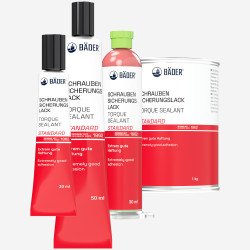
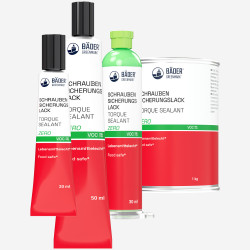
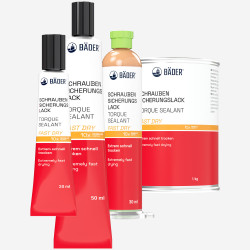
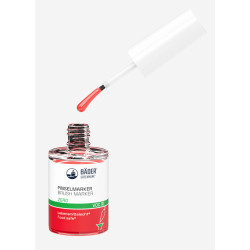
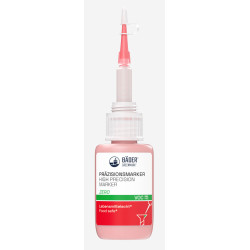

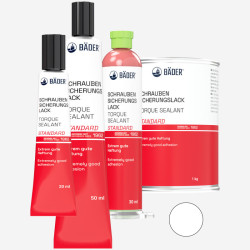
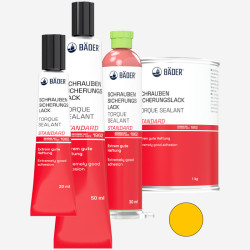
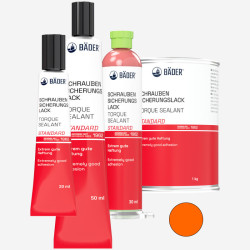
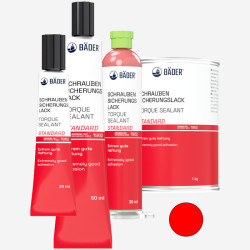
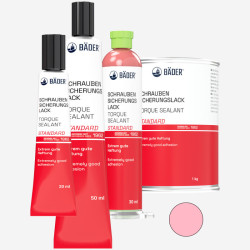
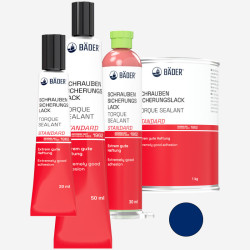
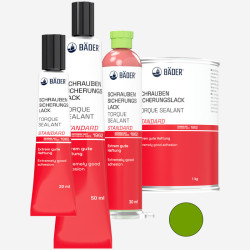
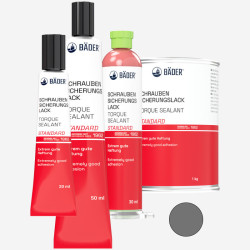
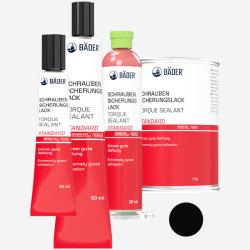
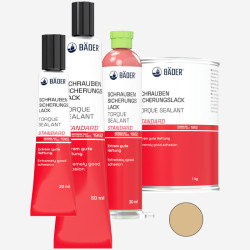
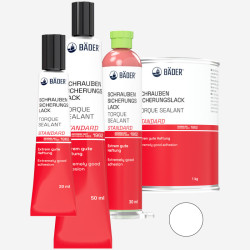
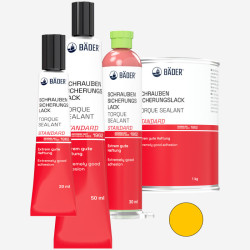
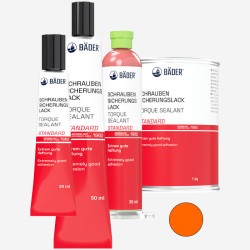
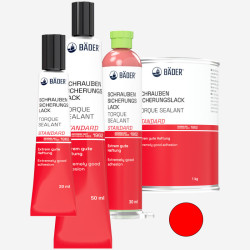
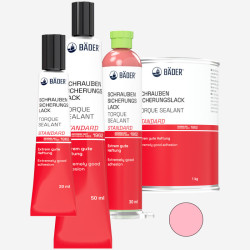
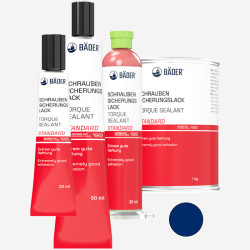
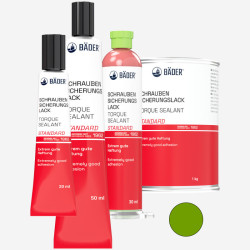
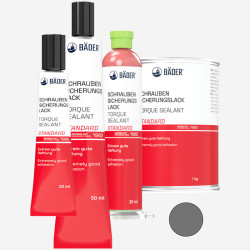

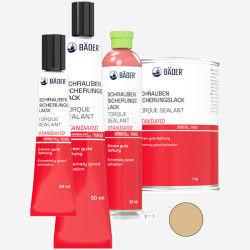
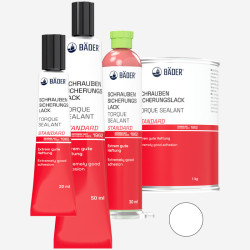
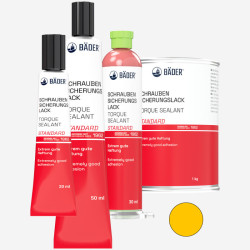
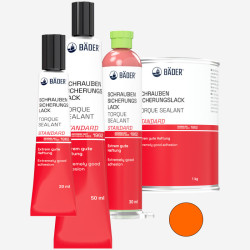
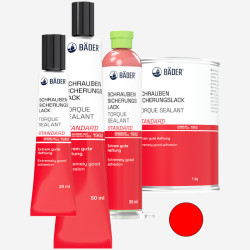
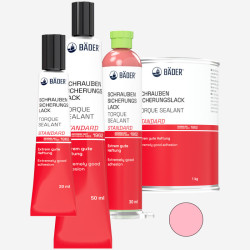
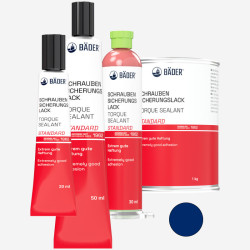
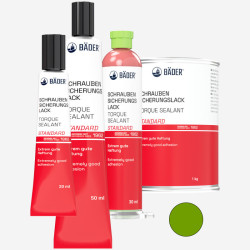
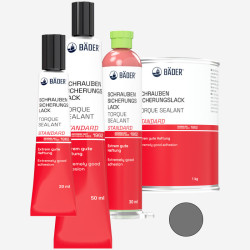
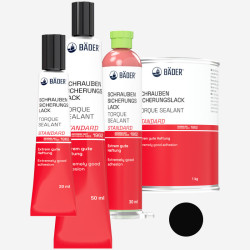
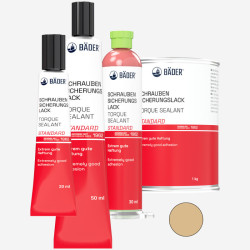
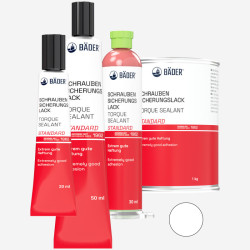
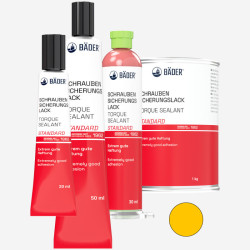
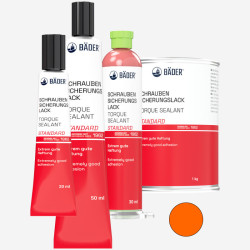
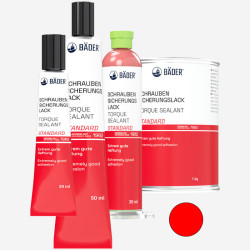
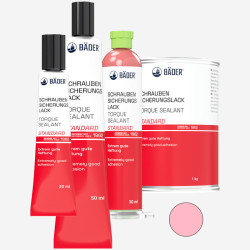
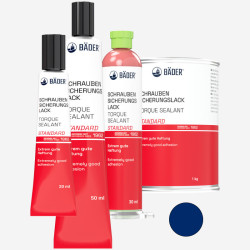
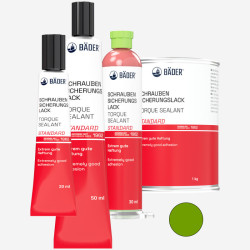

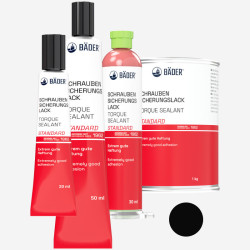
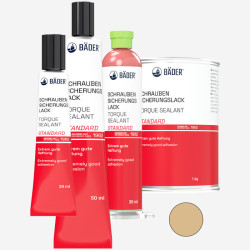
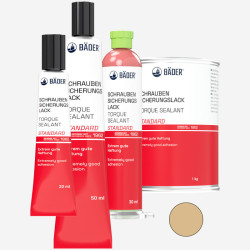

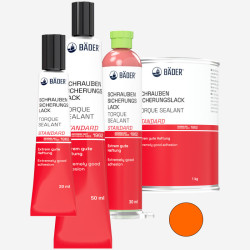
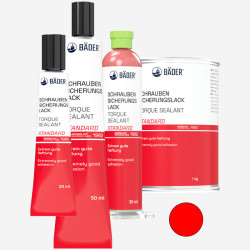

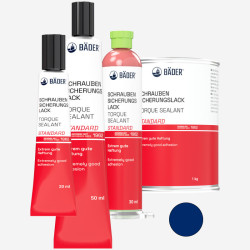

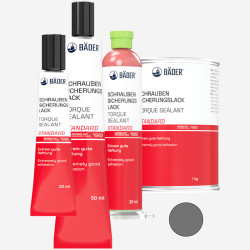
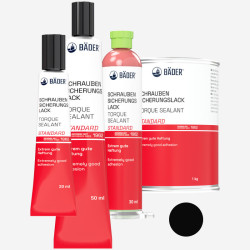
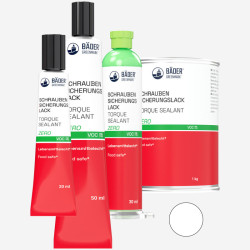
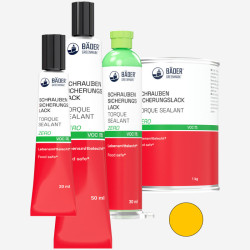
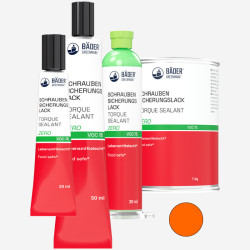
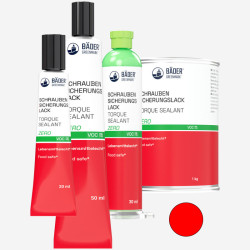

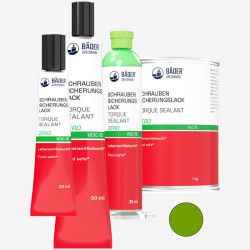
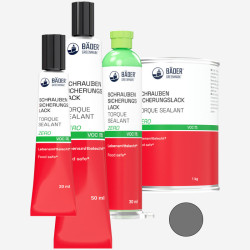
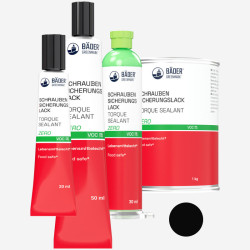
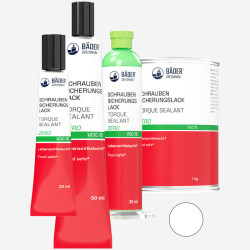
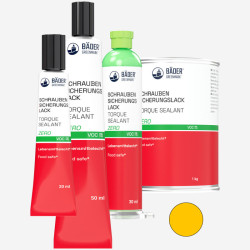
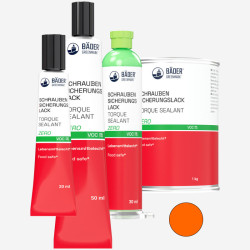
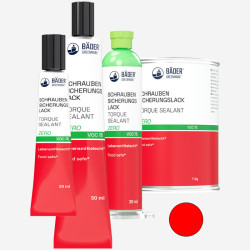

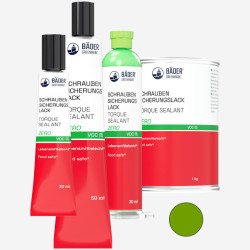
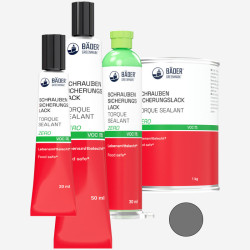
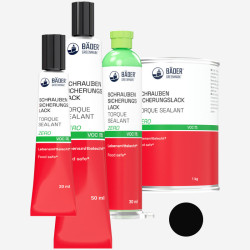
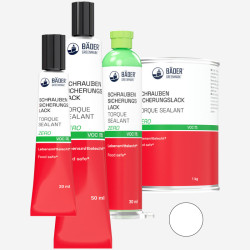
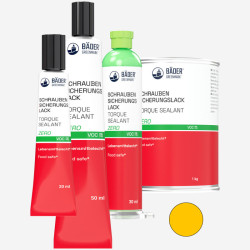
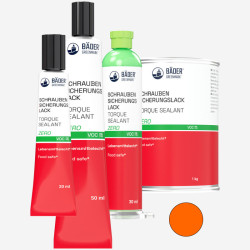
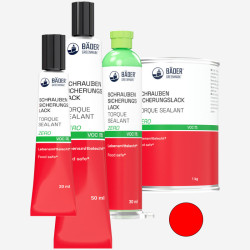
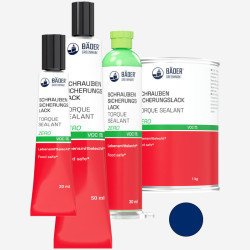
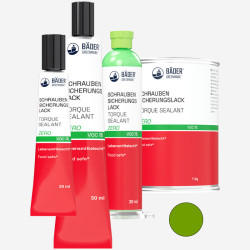
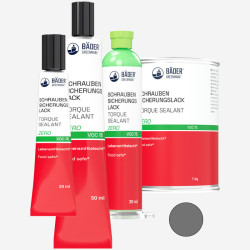
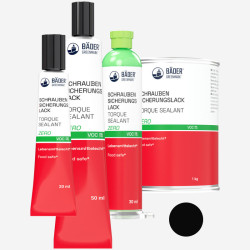
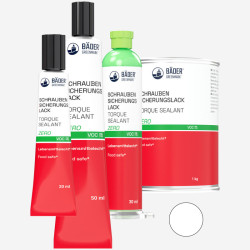
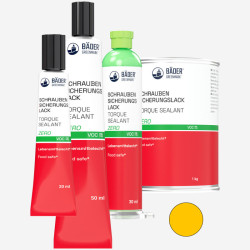
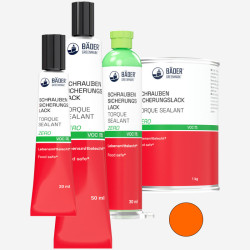
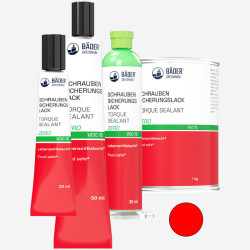
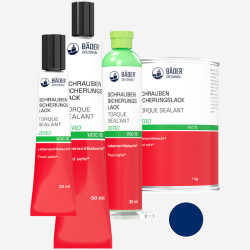


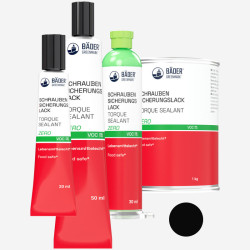
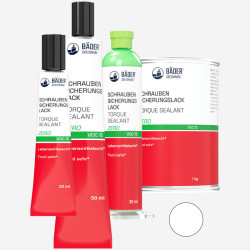
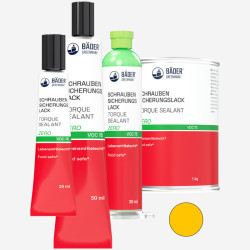
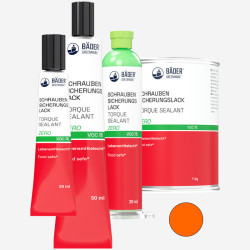
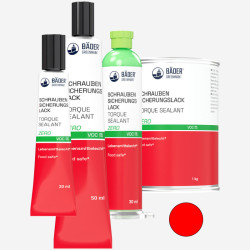

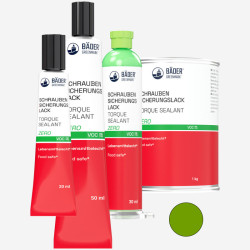
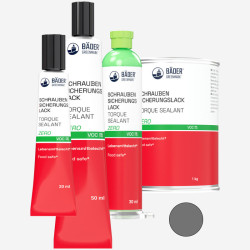
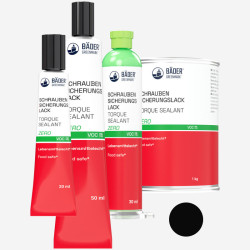
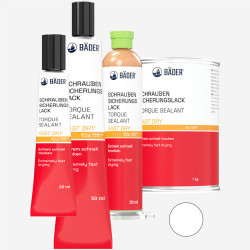
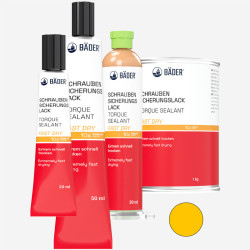
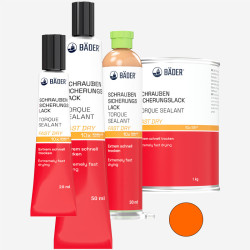
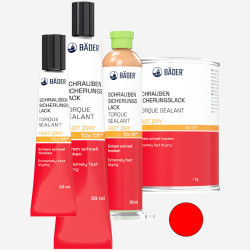
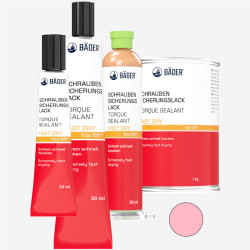
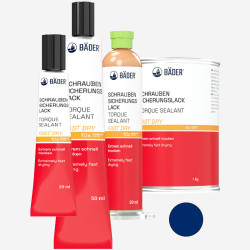
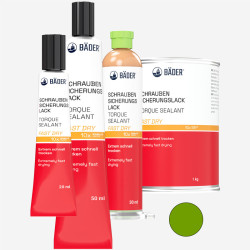
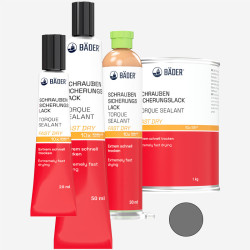
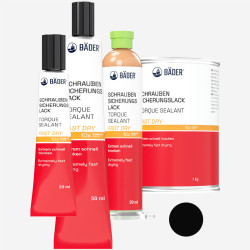
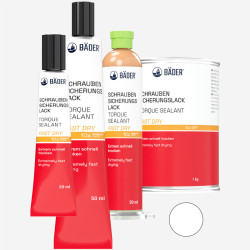
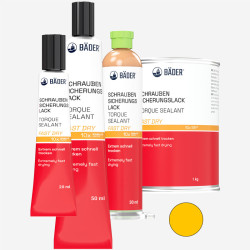
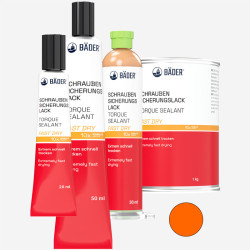
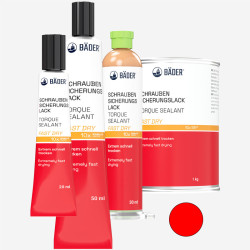
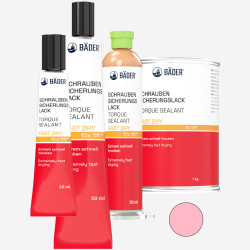
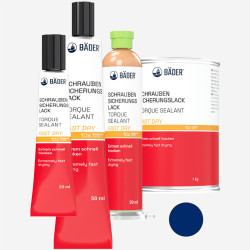
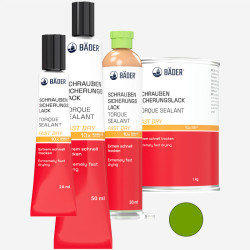
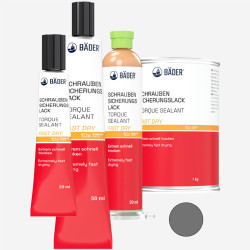
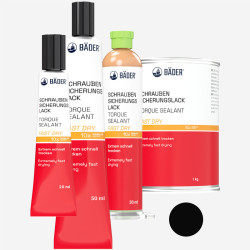
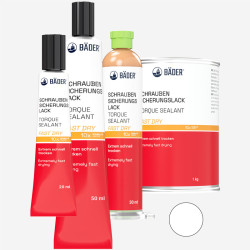
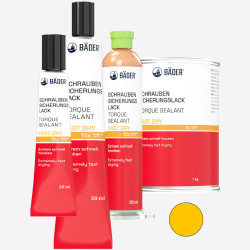
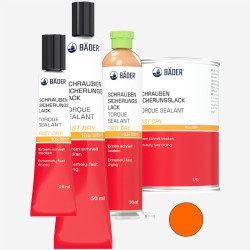
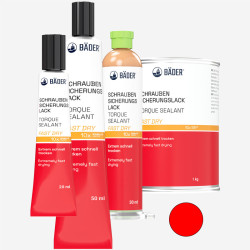
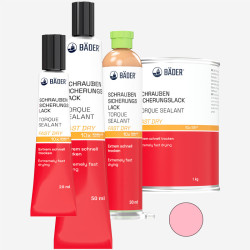
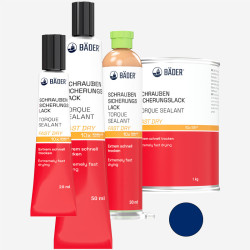
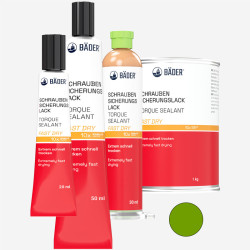
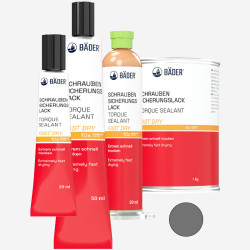
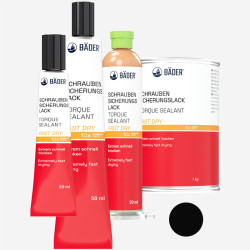
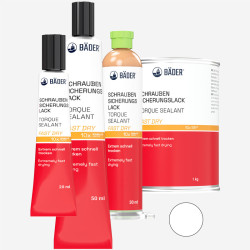
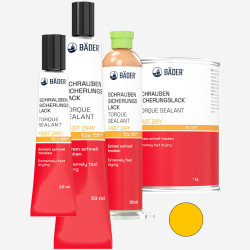
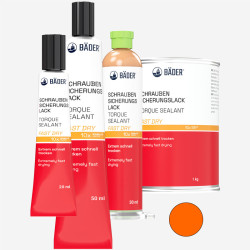
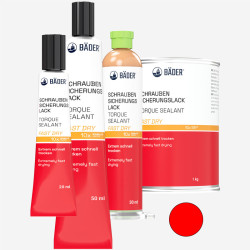
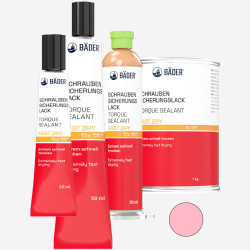
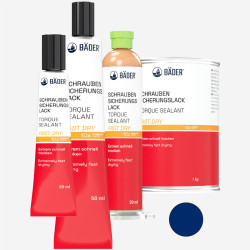
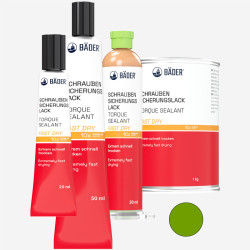
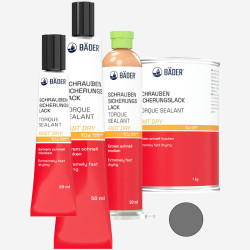
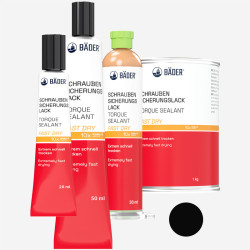
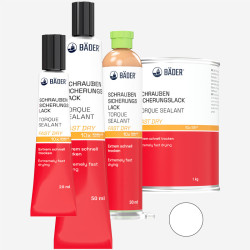
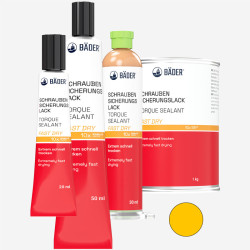
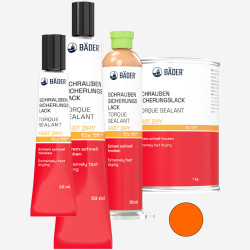
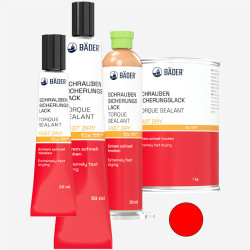
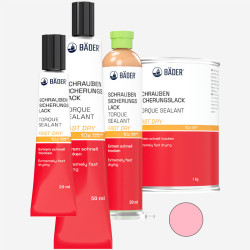

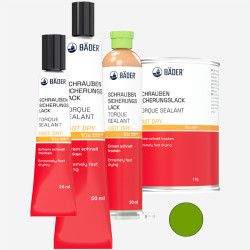
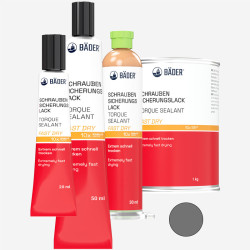
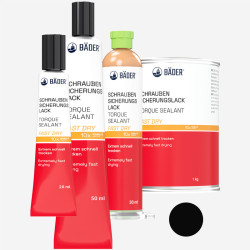
Leave a comment